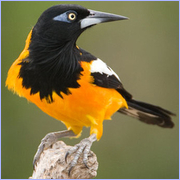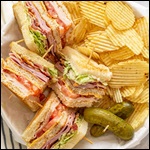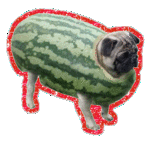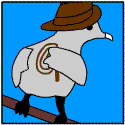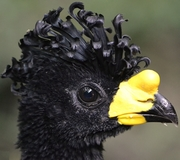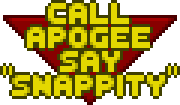|
Back in February, Diosdado Cabello said that the government had uncovered a coup plan that involved military officers commandeering airplanes to bomb targets around Caracas. Cabello said that the name of the operation was Golpe Azul [Blue Coup]. The subsequent trial was, as you could probably guess, rife with all kinds of absurdities and irregularities. One of the accused in the case was an air force captain named Laided Salazar de Zerpa. Her lawyer, Carlos Javier Salazar, said that the two officers killed in Thursday's crash, Ronald Ramirez and Jackson Garcia, gave expert testimony during the Golpe Azul trial. Salazar said: quote:They were prosecution witnesses. They were brought in as experts in these airplanes so that they could say during the trial that, yes, these officers could fly some Sukhois that were in Lara without any help to launch a coup d'etat. But the two witnesses' response - very professional - was that, no, arming an airplane for a rebellion requires fourteen people, and they [the conspirators] were only eight. Chuck Boone fucked around with this message at 16:14 on Sep 19, 2015 |
|
|
|

|
| # ? May 2, 2024 11:47 |
|
Chuck Boone posted:Vladimir Padrino Lopez, the Minister of Defense, has confirmed that the airplane's two crew members have been found dead. The airplane crashed in the Elorza region of Apure state. $35 million US dollars splattered all over the rainforest, Jesus. Weird that neither of the crew members managed to eject, there's only one other instance known of a crew member dying in a Su-30. I'd speculate that it's the usual problem of pilots not getting enough training time, odds are the Venezuelan Air Force doesn't have a whole lot of fuel money that isn't getting embezzled. E: Chuck Boone posted:One of the accused in the case was an air force captain named Laided Salazar de Zerpa. Her lawyer, Carlos Javier Salazar, said that the two officers killed in Thursday's crash, Ronald Ramirez and Jackson Garcia, gave expert testimony during the Golpe Azul trial. Salazar said: Well I guess that would be why their ejector seats didn't work. 
Constant Hamprince fucked around with this message at 22:57 on Sep 19, 2015 |
|
|
|
I dunno, if you want to get rid of a couple of politically embarassing military officers, it seems like there'd be an easier way to do it than to crash a horribly expensive (for a south american country, at least) aircraft that may not be replaceable.
|
|
|
|
There were nation-wide demonstrations yesterday in support of Leopoldo Lopez and the students. The theme of the demonstrations was "Venezuela Quiere" [Venezuela Wants], and the head of the opposition bloc (MUD), Jesus Torrealba, said that he hoped the events would be the beginning of "a great social movement". This was the demonstration in Merida, Merida state:  Somewhere in Barinas state:   In Caracas, Lilian Tintori spoke to supporters at a demonstration in Chacaito:   -Troika- posted:I dunno, if you want to get rid of a couple of politically embarassing military officers, it seems like there'd be an easier way to do it than to crash a horribly expensive (for a south american country, at least) aircraft that may not be replaceable. I agree. It's not really the government's M.O. They've been extremely successful accusing people they don't like of crimes and running them through the justice system (see: Maria Lourdes Afiuni, Raul Baduel, Leopoldo Lopez, Antonio Ledezma, Daniel Ceballos, Enzo Scarano). In a case like this involving two individuals completely out of the spotlight, it wouldn't make sense to bring attention to them in such a spectacular way. It's a coincidence, but an interesting one nonetheless.
|
|
|
|
Maduro and Santos met yesterday in Quito for the first time since Venezuela started closing crossings into Colombia on August 19. The meeting lasted about five hours and was facilitated by the presidents of Uruguay and Ecuadro, Tabare Vazquez and Rafael Correa, respectively. At the end of the meeting, Correa read a joint statement by Maduro and Santos. Here's a video of that along with my translation: https://www.youtube.com/watch?v=bpCgwQfYCos quote:This is what the joint statement reads: “The President of the Bolivarian Republic of Venezuela, Nicolas Maduro Moros, and of the Republic of Colombia, Juan Manuel Santos Calderon, had an important meeting in Quito facilitated by President Rafael Correa, CELAC’s pro tempore President, and President Tabare Vasquez, UNASUR’s pro tempore President, to carry out a constructive dialogue to help overcome the difficulties in the bilateral relationship. Now that the nastiness with Colombia is resolved once and for all - almost on cue - Guyana has crept into the spotlight again. Today, Guyanese President David Granger said that the country had detected an "extraordinary" build-up of Venezuelan troops along its border. Later in the day, Minister of Defense Vladimir Padrino Lopez said: quote:At this moment we’re conducting exercises towards the west of the country, an exercise of national deployment (...) [I] call on the people of Venezuela to remain calm because we're really getting ready (...) even with all the different fronts that we've taken on these days. He didn't provide any details about where exactly the exercises were taking place, who they involved, or how long they would last.
|
|
|
|
What's the beef with Guyana?
|
|
|
|
Kurtofan posted:What's the beef with Guyana? They're there.
|
|
|
|
Kurtofan posted:What's the beef with Guyana? The beef is a territorial dispute that goes back over 100 years. Some of it is "because they're there". There's definitely a question of why Maduro is pressing this issue so hard now, when Chavez and others before him didn't make as big a deal out of it. The issue is complicated, but here's the gist of it. The Spanish created the Viceroyalty of New Granada and later the Captaincy General of Venezuela in the 1700s. These territories included a region called Guyana Esequiba (in English it's called the Essequibo region, I think). Anyway, in the early 1800s the British came along and drew up maps for British Guayana. These maps also included Guyana Esequiba. By the time Venezuela had established itself as an entity separate from Spain, they took issue with the fact that a territory they considered part of their patrimony was suddenly showing up on maps for a British colony. In 1897, after a period of arbitration, a tribunal made of foreign powers ruled in favour of Britain, and granted it the territory. Guyana became a nation in 1966. As far as they're concerned, the issue had been dead long before then. For Guyana, the matter is simple: the tribunal gave them Guyana Esequiba. End of story. Starting in 1899, Venezuela began to formally protest the tribunal's ruling. Ever since then, Venezuela has claimed the region. In fact, growing up in Venezuela, I remember drawing lots of maps in elementary school, and these maps had to include a region in the east which we'd mark as "Zona en Reclamacion" [Reclamation Zone]. Here's the kicker: Guyana Esequiba, the region Venezuela claims as its own, is approximately 160,000 square kilometers in size. It's about 74% of Guyana. I've bordered it in red in the map below:  I don't think it's very populated, but it is very rich in resources. Guyana has been granting contracts for companies to extract the resources, and this is what Maduro has been taken issue with recently, because he very much believes that the region belongs to Venezuela. What's interesting is that previous governments haven't really taken things very far with Guyana. Chavez, for example, said in 2004 that Venezuela would not oppose to any projects in the region that would benefit the people of Guyana. There's a lot of discussion as to why Chavez decided to lay off on the claim, but the most convincing theory I've heard was that he did it as a way to gain regional support. In other words, the situation is tricky. There's a territorial dispute Venezuela hasn't really pushed too hard in recent years. Guyana was under the impression that it could develop the area, and now it's confused because Maduro is going back on what Chavez said.
|
|
|
|
There's some nuance to add here though: First, the reason this has been brewing so long AFTER arbitration is that it was only in 1949, after all judges in the arbitration were dead, that a posthumous letter by one of the American arbitrators working for Venezuela came to light, alleging that a fix was in with the "neutral" Russian judge allowing either a unanimous decision favorable to the British along current lines, or a 3 to 2 decision granting the British even more land. Second, according to a 1989 agreement that followed Venezuela's refiling of an objection in 1962, Venezuela and Guyana are supposed to negotiate a solution through a Good Officer protocol mediated in part by the UN. The last Good Officer died in 2014 and a new one has not been appointed, leading in part to the current issues. Now, this all said, if you thought this is all a political ploy by Maduro, you're not wrong! As the delay between the announcement of the fix in 1949 and the revival of Venezuela's objection in 1963 demonstrates, Guayana Esequiba has always been a political tool for Venezuelan leaders. This delay was very probably in part caused by the late transition from the Pérez dictatorship to a democracy in 1959 under Betancourt. And the Port of Spain Agreement, which put the claim on ice between 1970 and 1983 was brokered by Caldera, a leader of the opposing, center-right, Christian Democratic, COPEI party, but ended under Herrera, a member of the same party who may well have wanted to revive claims to boost his foreign policy credentials to contrast his party favorably against Acción Democrática's 1975 nationalization of the oil industry under Carlos Pérez.
|
|
|
|
The region is under effective control of Guyana, right? Is there anything Venezuela could realistically do to press its claim? I imagine that if they tried to invade, there would be a strong international reaction.
|
|
|
|
Phlegmish posted:The region is under effective control of Guyana, right? Is there anything Venezuela could realistically do to press its claim? I imagine that if they tried to invade, there would be a strong international reaction.
|
|
|
|
ComradeCosmobot posted:There's some nuance to add here though: Thank you for this! I've struggled to get a grasp on this topic because it goes back so long and there's just so much going on. It doesn't help that there's a bunch of terms that I see used interchangeably sometimes, but other times they appear to refer to specific concepts or places. For example, the region in question is sometimes called Guyana Esequiba or Esequibo; in English, it's Essequibo. But that's also the name of a river. Also, Guyana is one thing but Guayana is another; the first is the country, the second is a region bordering that country in Venezuela, and also a city. Phlegmish posted:The region is under effective control of Guyana, right? Is there anything Venezuela could realistically do to press its claim? I imagine that if they tried to invade, there would be a strong international reaction. What's happening now is that Venezuela is trying to re-start the Good Officer mediation. Maduro met with Ban Ki-moon recently over this. The problem is that Guyana said (recently, maybe yesterday) that it's not interested in re-starting that process because as they see it, the issue is dead. They have de facto control over the region. Only Venezuelan maps show the region in question as a "Reclamation zone". For Guyana, there's really nothing to talk about. This is where all the posturing comes in. Last night, Maduro went on TV and said that Granger was "lying" about the troop movements along the Venezuela border, flying in the face of the statement by the Minister of Defense. Today, a Major General of the Venezuelan army also confirmed that there are, in fact, exercises taking place in Bolivar state in proximity to the border with Guyana. Maduro is facing pressure, as Chavez did, from the opposition to press the claim because the impression is that he's just letting Guyana have land that rightly belongs to Venezuela. This is a weird issue because it has the power to unite pro-government and opposition supporters. It's also strange because for the PSUV, la patria plays such an important role in their mythology that rolling over and letting Guyana take some of it without putting up a fight contradicts that rhetoric. Ultimately, I think Maduro is choosing to make a fuss about this now because, a) it's another distraction from the country's problems, and b) it lets him point the finger at another party as being a member of the grand conspiracy against Venezuela.
|
|
|
|
Phlegmish posted:The region is under effective control of Guyana, right? Is there anything Venezuela could realistically do to press its claim? I imagine that if they tried to invade, there would be a strong international reaction. The international community can't even do anything about Russia annexing a European country. No one is going to do anything about a border dispute between two unimportant Latin American countries. Maduro may eventually realize that if he wants to retire to a villa in Nice with his billions of looted Swiss bank account dollars, the perfect pretext will be a negotiated end to a U.S. intervention. Then we can get another 100 years of Allende-type apologism claiming everything was going great until the CIA interfered, too. But I honestly don't know what he could possibly do to provoke anyone outside South America giving a poo poo other than launch some sort of terrorist attack on the U.S. There just isn't anything that PSUV can do to the Venezuelan people, or Colombia or Guyana, that matters to the first-tier world powers.
|
|
|
|
Pursue nuclear weapons I guess. I'd hope that even the South Americans would oppose that but they might well like it. Either way I doubt that that would ever happen.
|
|
|
|
Guyana's Minister of Defense said earlier today that the Guyanese army would bolster its presence along the border in response to the increase in Venezuelan military activity there. He didn't give any details, though. At the same time, the Minister of Foreign Affairs Carl Greenidge said that Venezuelan navy ships had been spotted in the Coeroeni river. I can't figure out where this river is on a map, but Greenidge made it clear that it's in Guyana. Any time you have people with guns running around in relative close proximity to each other - specially at a time of heightened tension - there's a chance that someone's going to make a mistake, but I don't think there's will from Caracas to really pursue this militarily. I think this is all just part of the same kind of posturing and provocation that we've been seeing from Maduro since he took office.
|
|
|
|
M. Discordia posted:The international community can't even do anything about Russia annexing a European country. No one is going to do anything about a border dispute between two unimportant Latin American countries. Venezuela would be a lot easier to punish than Russia so I don't think the comparison really works.
|
|
|
|
Cliff Racer posted:Pursue nuclear weapons I guess. That would be illegal. Not that that stopped North Korea, Iran or Iraq from exploring the possibility, but it would make them a literal pariah state in the international community.
|
|
|
|
If Venezuela threatened to develop nuclear weapons, the US could unilaterally impose crippling sanctions by refusing to ship refined Venezuelan oil back to them. They can barely refine any of their own, and the next closest refineries that can handle it are iirc either in the middle east, Russia or Australia.
|
|
|
|
ComradeCosmobot posted:That would be illegal.
|
|
|
|
Nintendo Kid posted:If Venezuela threatened to develop nuclear weapons, the US could unilaterally impose crippling sanctions by refusing to ship refined Venezuelan oil back to them. U.S. oil refineries are privately owned, so this would be moving heaven and Earth to make happen, especially since Kerry has signaled a "warming of relations" with Venezuela and no one in U.S. politics right now has made Maduro's behavior an issue even a little bit. It would have to ramp up from someone who matters saying this is our problem, all the way to authorization of shutting down an industry. It's still more likely than a military intervention, though.
|
|
|
|
The last time the U.S. took a concrete stand against what's happening in Venezuela was back in early March when the U.S. Department of the Treasury sanctioned 7 Venezuelan officials suspected of being involved in human rights violations, including some army generals and the head of the National Bolivarian Police. The full list of the sanctioned individuals is here. The US did also stick their foot in their mouth when they declared Venezuela "a national security threat" at the same time. I don't have the source, but I remember that later they backtracked on this and said that the statement they read came from a template that included those words, or something to that effect. Anyway, the PSUV and the "What's my position on this issue? The exact opposite of whatever position the US is taking!" crowd had a field day with this. The PSUV spun it as a direct attack on all of the Venezuelan people even though the sanctions were very clearly defined and targeted at only seven people, and supporters abroad pointed to us as another example of US meddling.
|
|
|
|
M. Discordia posted:Maduro may eventually realize that if he wants to retire to a villa in Nice with his billions of looted Swiss bank account dollars, the perfect pretext will be a negotiated end to a U.S. intervention. Then we can get another 100 years of Allende-type apologism claiming everything was going great until the CIA interfered, too. Maduro is a horrible person, but by using such statements you're just playing into the image of the oversensitive and perpetually suspicious Latin American right-winger.
|
|
|
|
I'm saying that we don't remember that Allende had already destroyed human rights, civil society, and the economy in Chile, precisely because of what came after and how much longer-lasting and worse it was. Creating a situation where a left-wing government allows no opposition but armed revolution will eventually lead to armed right-wing revolution. Pinochet was one of the best things that ever happened to U.S. armchair Marxists, because he is why the failures of Allende don't get discussed. It's in the interests of everyone who doesn't want to see Venezuela turned into a battleground between violent left- and right- wing factions to work to restore democracy and civil liberties in Venezuela. There is only one outcome for a totalitarian society.
|
|
|
|
Fair enough, this being a discussion about Latin American politics one can never be too careful sadly. I don't think Maduro is open to any sort of violent overthrow regardless. The military has been sufficiently purged (they learned the lessons of the past decades) and there's really no other source for that sort of force to come from. The whole thing could end with blood on the streets and the like, but it won't be because the military initiates the action.
|
|
|
|
M. Discordia posted:I'm saying that we don't remember that Allende had already destroyed human rights, civil society, and the economy in Chile, precisely because of what came after and how much longer-lasting and worse it was. Also because he didn't do any of that. That's the main reason we don't remember that thing, because that thing never happened.
|
|
|
|
So is it pretty much the opinion that all the Colombia/Guyana stuff is Maduro shopping around for an international crisis before the elections?
|
|
|
|
Adventure Pigeon posted:So is it pretty much the opinion that all the Colombia/Guyana stuff is Maduro shopping around for an international crisis before the elections? I'd say this is far more likely than any solid, rational policy basis for addressing these issues right at this moment. It gets tricky because both cases are grounded on arguments with varying degrees of validity. The case of the territorial dispute with Guyana, which as ComradeCosmot explained, has loads of historical and legal precedent. The question in this case is, "Why now?", specially when Chavez made it official policy to not oppose the very same activities that Maduro is opposing now. I think the answer to that question is that a dispute with Guyana, a) serves as a distraction for the country's real problems, and b) gives the government yet another actor to blame for its problems. On the Colombian case: while it is true that goods are smuggled out of Venezuela through Colombia, the problem isn't that the border crossings are there: it's the massive network of corruption on the Venezuelan side that happily lets the products leave the country for kickbacks. Smuggling is a lucrative business for everyone involved thanks to the absurd price distortions created by Venezuela's price controls on regulated items. Closing the border doesn't fix any of that. Declaring states of exception in border municipalities doesn't fix any of that either. The question in this case is, again, "Why now?", and I think the answer is the same as in the case of Guyana. EDIT: I just saw that two days ago, the Vice-Minister for Women, Yekuana Martinez, tweeted that the Instituto Nacional de la Mujer [National Institute for Women] (INAMUJER) held a workshop the other to teach women how to make sanitary napkins out of cloth "in the battle against the economic war":  Sanitary napkins are one of the products that are virtually impossible to find in stores. They go for about 400% the regulated price on the streets. Chuck Boone fucked around with this message at 14:09 on Sep 25, 2015 |
|
|
Cliff Racer posted:As if legality is the end all and be all. Noted international pariahs India, Pakistan, Israel, Iran and yes, even North Korea, would all disagree with your conclusions. The real limiting factor is that there's no reason for them to spend money/influence on that. Like i said, they're never going to even try to do it, I'm merely musing about what it would take to get the international community to pay attention. All of those states which have nuclear weapons have them legally, whether through not signing the NPT or withdrawing from it.
|
|
|
|
|
Effectronica posted:All of those states which have nuclear weapons have them legally, whether through not signing the NPT or withdrawing from it. And none of those states violated or withdrew from a Nuclear Weapons Free Zone treaty to do so.
|
|
|
|
López had an op-ed published in the NYT today. http://www.nytimes.com/2015/09/25/opinion/even-in-jail-i-will-fight-for-a-free-venezuela.html?smid=tw-share There's been a noticeable uptick in American mainstream media coverage of Venezuela over the last few weeks, to a level not seen since at least the 2013 presidential election. I'm not sure why.
|
|
|
|
Adventure Pigeon posted:So is it pretty much the opinion that all the Colombia/Guyana stuff is Maduro shopping around for an international crisis before the elections? It's pretty much the only play they have: they will not take any real measures for correcting the economy before the elections for fear of alienating more voters and further persecution of high-profile opposition figures would bring too much attention. One other aspect of the Colombian border crisis is the fact that out of the 26 circuits that are under a state of exception, 15 are basically tied when it comes to intention of votes (source for this data is in Spanish and I'm too lazy to translate all of it http://www.efectococuyo.com/efecto-cocuyo/15-de-los-26-circuitos-electorales-de-la-frontera-se-deciden-por-minima-diferencia). That gives the government an edge since they can use the state of exception to stop the opposition from campaigning there and use the military to intimidate voters on election day.
|
|
|
|
A couple of interesting developments from the past few days:
|
|
|
|
What in the gently caress is going on with this story of the plane going down and PDVSA and FARC. There's too many weird details and far too many dark corners in that narrative which will let all kinds of conspiracy theories flourish.
|
|
|
|
There have been rumours for a long time that the FARC and the PSUV were buddy-buddy. At some point Colombia said that it had hard evidence linking Chavez to the FARC leadership, but as someone pointed out earlier in the thread there are lots of problems with that evidence, rendering it wholly unreliable. Anyway, what's important here is that Maduro admitted that a state-owned airplane was used to transport Timochenko. When asked during the same interview if the rumours that Timochenko lived in Venezuela were true, Maduro answered, "he's where he needs to be", which is a really funny way to say "no". As for the Su-30 connection, all we have now is that news report from Noticias RCN. This government is so secretive that we'll never know for sure exactly why/how that plane went down. Remember that the official explanation is that it had been scrambled to intercept a mystery drug smuggling aircraft.
|
|
|
|
PerpetualSelf posted:It's clear at this point that another nation; any nation, should intervene. Probably by providing opposition civilians with guns and training and funding a guerrila war against the current leaders. I think if that were to occur the PSUV house of cards would fall quite quickly. I too would like decades of brutal, merciless proxy war between world powers. This has never failed before, especially not in Latin America. E: Think about it this way. The US "intervenes" in Venezuela to throw out Maduro, and they're going to want someone who is friendly to US economic and geopolitical interests because of course they will. Russia and China, seeing their economic and political interests threatened by the US wanting to drag Venezuela back into its sphere of influence, will "intervene" in favor of the chavistas, since they're the strongest enemies of the US-friendly faction and they already have economic deals. Venezuela's neighbors are all going to have geopolitical agendas of their own, and will male their own smaller "interventions" to further their own interests. You're not going to have a guerrilla war between the PSUV and the people, you're going to have a proxy war between foreign interests, none of whom are willing or even able to rule Venezuela, and none of whom are willing to "lose Venezuela", so they will continue to prop up their sides in the war basically forever. Meanwhile, shitloads of people die. Nobody wins and Venezuela loses. Woolie Wool fucked around with this message at 23:57 on Sep 30, 2015 |
|
|
|
Woolie Wool posted:Nobody wins and Venezuela loses. The proxy bullshit also destroys future possibilities of democracy, it spawns generations upon generations of (rightfully) jaded political fanatics. wiregrind fucked around with this message at 10:24 on Oct 1, 2015 |
|
|
|
A survey came out today on voting intentions for the December 6 parliamentary elections, and it's got some interesting results. It's from the Hercon Consultores firm and it polled 1,200 electors registered with the Consejo Nacional Electoral. The survey was conducted between September 5 and 20. The entire survey can be found here, in Spanish. Below are select points of interest. On the general situation in the country and its causes:
On voting intentions:
This survey is in line with previous surveys which capped support for Maduro and the PSUV at the 20-25% range. It also shows that what is propelling the opposition forward is the fact they've got the "Ni-Ni" vote locked down. This tendency is consistent with some of the other findings in the survey that show that the vast majority of Venezuelans blame the Maduro government for the country's problems.
|
|
|
|
That's still a lot of support for Maduro, that's pretty mind boggling to me.
|
|
|
|
Kurtofan posted:That's still a lot of support for Maduro, that's pretty mind boggling to me. 25% is about the "will vote for a Ham Sandwich with -R next to its name" level here.
|
|
|
|

|
| # ? May 2, 2024 11:47 |
|
Kurtofan posted:That's still a lot of support for Maduro, that's pretty mind boggling to me. Henrique Capriles would say a lot of that is from the "enchufados" [meaning, "those plugged in", to government money]. These are the people who benefit directly from government/government contacts, some of it through corruption. It's not at all an issue of, "the poor support the PSUV and everyone else supports the opposition". The top three biggest problems affecting the country are inflation, insecurity and scarcity. Those issues affect the poor more than any other class.
|
|
|



